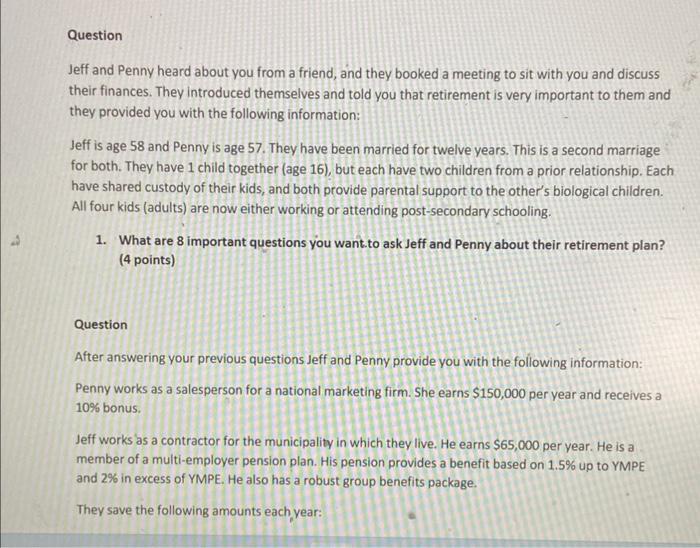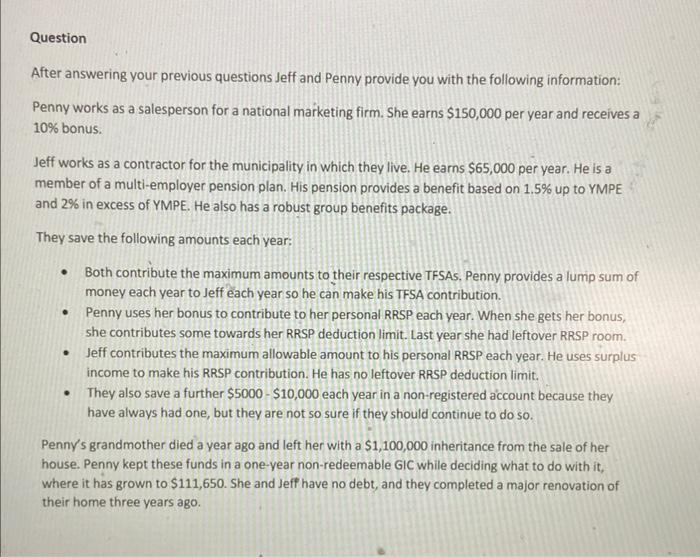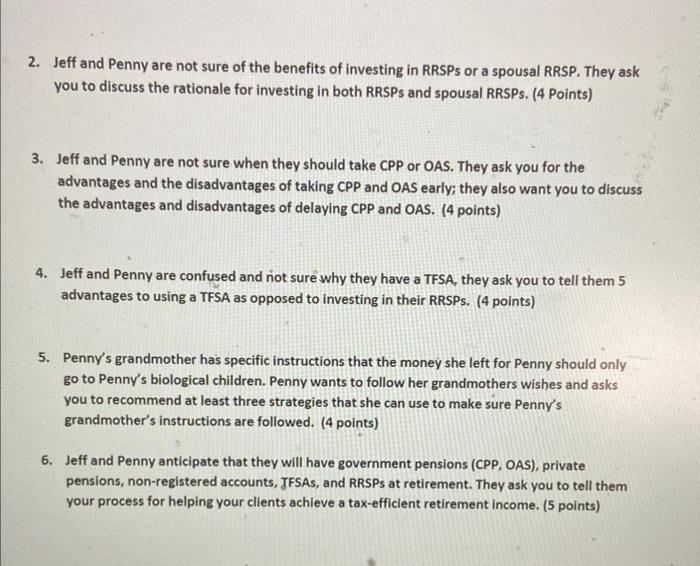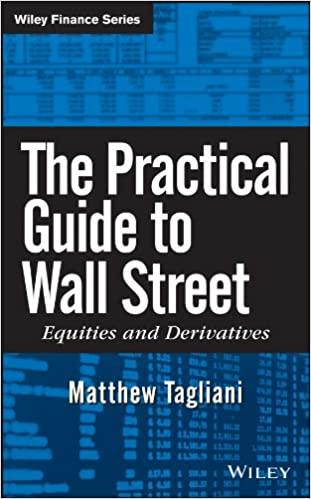Jeff and Penny heard about you from a friend, and they booked a meeting to sit with you and discuss their finances. They introduced themselves and told you that retirement is very important to them and they provided you with the following information: Jeff is age 58 and Penny is age 57 . They have been married for twelve years. This is a second marriage for both. They have 1 child together (age 16), but each have two children from a prior relationship. Each have shared custody of their kids, and both provide parental support to the other's biological children. All four kids (adults) are now either working or attending post-secondary schooling. 1. What are 8 important questions you want.to ask Jeff and Penny about their retirement plan? (4 points) Question After answering your previous questions Jeff and Penny provide you with the following information: Penny works as a salesperson for a national marketing firm. She earns $150,000 per year and receives a 10% bonus. Jeff works as a contractor for the municipality in which they live. He earns $65,000 per year. He is a member of a multi-employer pension plan. His pension provides a benefit based on 1.5% up to YMPE and 2% in excess of YMPE. He also has a robust group benefits package. They save the following amounts each year: Question After answering your previous questions Jeff and Penny provide you with the following information: Penny works as a salesperson for a national marketing firm. She earns $150,000 per year and receives a 10% bonus. Jeff works as a contractor for the municipality in which they live. He earns $65,000 per year. He is a member of a multi-employer pension plan. His pension provides a benefit based on 1.5% up to YMPE and 2% in excess of YMPE. He also has a robust group benefits package. They save the following amounts each year: - Both contribute the maximum amounts to their respective TFSAs. Penny provides a lump sum of money each year to Jeff each year so he can make his TFSA contribution. - Penny uses her bonus to contribute to her personal RRSP each year. When she gets her bonus, she contributes some towards her RRSP deduction limit. Last year she had leftover RRSP room. - Jeff contributes the maximum allowable amount to his personal RRSP each year. He uses surplus income to make his RRSP contribution. He has no leftover RRSP deduction limit. - They also save a further $5000 - $10,000 each year in a non-registered account because they have always had one, but they are not so sure if they should continue to do so. Penny's grandmother died a year ago and left her with a $1,100,000 inheritance from the sale of her house. Penny kept these funds in a one-year non-redeemable GIC while deciding what to do with it, where it has grown to $111,650. She and Jeff have no debt, and they completed a major renovation of their home three years ago. 2. Jeff and Penny are not sure of the benefits of investing in RRSPs or a spousal RRSP. They ask you to discuss the rationale for investing in both RRSPs and spousal RRSPs. (4 Points) 3. Jeff and Penny are not sure when they should take CPP or OAS. They ask you for the advantages and the disadvantages of taking CPP and OAS early; they also want you to discuss the advantages and disadvantages of delaying CPP and OAS. (4 points) 4. Jeff and Penny are confused and not sure why they have a TFSA, they ask you to tell them 5 advantages to using a TFSA as opposed to investing in their RRSPs. ( 4 points) 5. Penny's grandmother has specific instructions that the money she left for Penny should only go to Penny's biological children. Penny wants to follow her grandmothers wishes and asks you to recommend at least three strategies that she can use to make sure Penny's grandmother's instructions are followed. ( 4 points) 6. Jeff and Penny anticipate that they will have government pensions (CPP, OAS), private pensions, non-registered accounts, JFSAs, and RRSPs at retirement. They ask you to tell them your process for helping your clients achieve a tax-efficient retirement income. (5 points)









